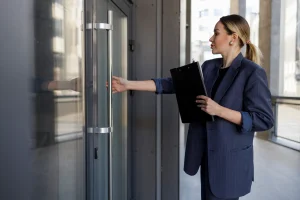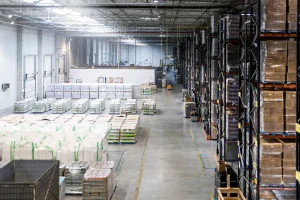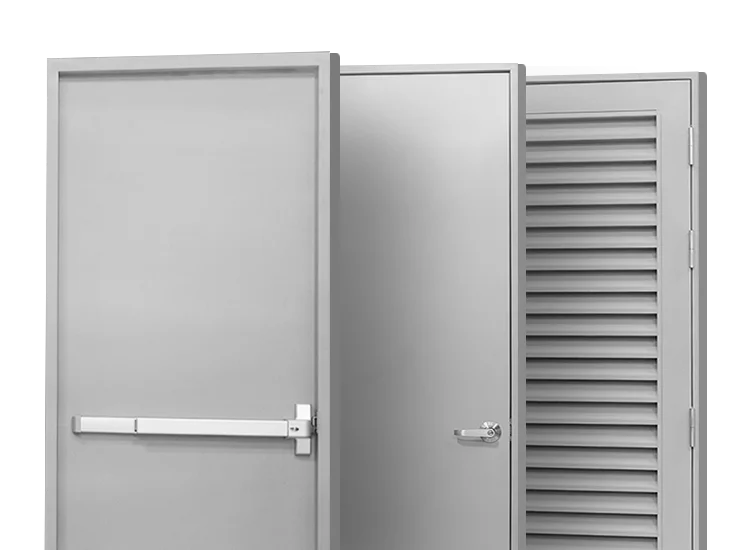Louvers have become an essential feature in modern commercial spaces due to their ability to combine functionality and aesthetics. From regulating airflow to offering protection against weather conditions, louvers are designed to meet various practical needs while adding visual appeal. Whether you’re managing plant rooms, heating, ventilation, and air conditioning (HVAC) systems, or any other type of commercial environment, knowing the right type of louver can enhance both efficiency and comfort.
This guide will walk you through the types of louvers available, their applications, and why they are an excellent choice for commercial spaces. Let’s explore the benefits of louvers and how louvered doors can transform your property.
What is a Louver?
A louver is a series of horizontal slats, typically made from materials like metal or wood, that are angled to allow air or light to pass through while blocking out unwanted elements like rain, direct sunlight, or debris. Louvers are designed to maintain ventilation while offering protection, making them a popular feature in both industrial and commercial settings.
Aside from their basic design, louvers come in various forms depending on their application, such as fixed, adjustable, or operable slats. They are frequently used for controlling airflow in HVAC systems, regulating temperature, and improving air quality in plant rooms or other controlled environments. Louvers can also enhance energy efficiency, making them indispensable in modern buildings.
What are the Primary Functions of Louvers?
Louvers serve several vital functions in a variety of settings, from industrial facilities to office buildings. Here are some key functions:
- Ventilation and Protection – Louvers play a crucial role in allowing airflow while providing protection against the elements. Their angled slats enable air to pass freely, improving indoor air quality without compromising safety from weather conditions like rain or wind.
- Temperature Control – Louvers help regulate the temperature inside commercial spaces by allowing cool air to enter and warm air to escape. This is especially beneficial for areas that house HVAC systems or sensitive equipment, ensuring proper airflow to maintain ideal temperatures.
- Weather Protection – By shielding a space from direct sunlight and precipitation, louvers act as a barrier against adverse weather conditions. This protection helps prevent potential damage to equipment while maintaining a comfortable environment for workers.
- Energy Efficiency – Louvers can make a building more energy-efficient by reducing the need for artificial ventilation or temperature control. The natural regulation of air and light through louvers can lower energy costs, especially when adjustable louvers are used to optimize airflow based on weather conditions.
- Aesthetic and Functionality – Beyond their functional advantages, louvers offer aesthetic appeal. They enhance the appearance of buildings by adding a sleek, modern look. This blend of functionality and design makes them a popular choice in both industrial and commercial spaces.
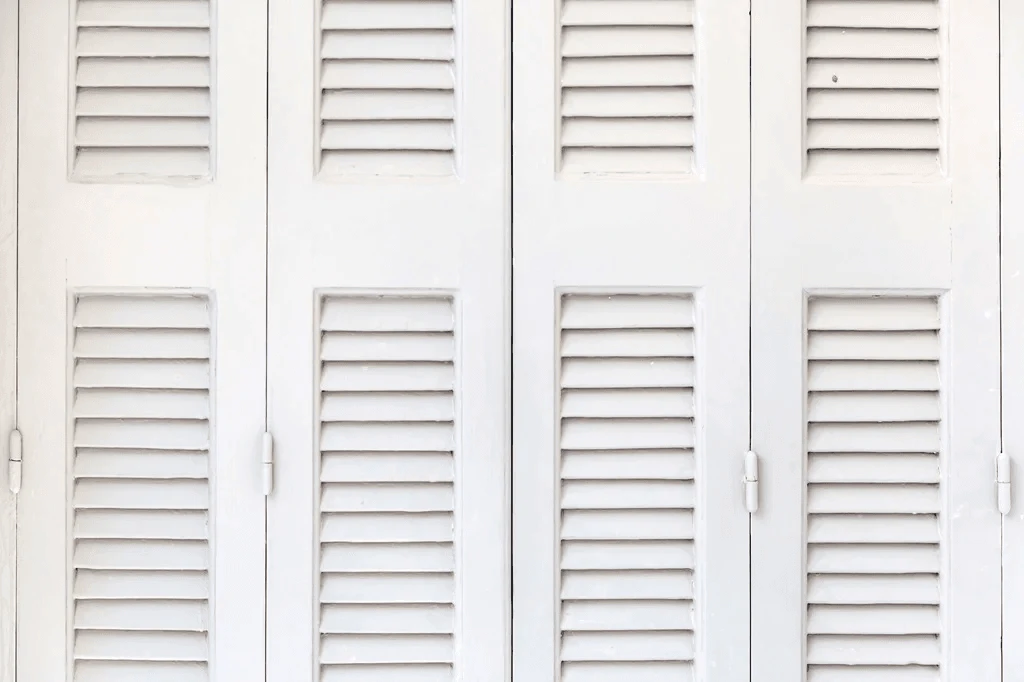
Types of Louvers
When choosing louvers for your commercial space, it’s essential to understand the different types of louvers available. Here are the common types:
- Fixed Louvers – These louvers have stationary, angled slats that allow for continuous airflow while offering consistent protection against weather elements. Fixed louvers are commonly used in HVAC systems and for ventilation in plant rooms.
- Adjustable Louvers – Adjustable louvers come with movable slats, allowing users to control the amount of air and light that enters a space. This feature is beneficial for spaces requiring flexible airflow and light regulation, making them ideal for environments with varying weather conditions.
- Drainable Louvers – Designed specifically for areas exposed to heavy rain, drainable louvers have channels to direct water away from the building. They help prevent water from entering, which can be particularly valuable for plant rooms or HVAC systems prone to moisture damage.
- Acoustic Louvers – These louvers are designed to reduce noise pollution while still allowing for ventilation. They are ideal for commercial spaces near busy streets or loud industrial areas, helping to maintain a quieter indoor environment.
- Combination Louvers – Combination louvers incorporate multiple features, such as air control and weather protection. They are versatile and can be tailored to meet the specific needs of a commercial property, offering the best of both worlds.
Factors to Keep in Mind When Choosing the Right Louver
When selecting a louver for your commercial space, consider these key factors:
- Airflow Requirements – Ensure the louver can accommodate your ventilation needs.
- Weather Conditions – Select a louver that offers sufficient protection for your local climate.
- Material Durability – Always go for high-quality materials like steel or aluminum to ensure long-lasting performance.
- Energy Efficiency – Choose adjustable or fixed louvers based on your energy-saving goals.
- Noise Control – Consider acoustic louvers for areas with high noise levels.
- Aesthetic Value – Pick louvers that complement the design of your building.
Why Consider Doors with Louvers for Your Commercial Space
Louvered doors are a smart and versatile addition to commercial spaces, offering unique benefits that standard doors simply cannot provide. These, equipped with angled slats, allow air to pass through freely while maintaining privacy and protection from external elements. Whether you’re looking to improve airflow, energy efficiency, or the overall aesthetics of your commercial property, louvered doors are an effective solution.
Here are the top reasons to consider louvered doors for your commercial space:
1. Enhanced Ventilation for Indoor Comfort
Louvered doors significantly boost ventilation by promoting a continuous flow of fresh air. This makes them ideal for spaces that need natural airflow without sacrificing privacy, such as restrooms, storage rooms, or areas requiring better temperature regulation. By improving ventilation, they help maintain comfortable indoor conditions, preventing stuffiness and boosting overall air quality.
2. Optimized Temperature Control
Doors with louvers help regulate indoor temperatures by enabling passive airflow between rooms or from the outside. This passive cooling reduces the need for constant use of air conditioning or heating, making your space more energy-efficient. Whether installed in plant rooms, server rooms, or even office spaces, louvered doors play a crucial role in maintaining an optimal climate with minimal energy consumption.
3. Increased Energy Efficiency
Louvered doors provide natural airflow, which can help reduce energy costs related to ventilation and climate control systems. By promoting a more energy-efficient environment, you lessen your dependency on HVAC systems, leading to lower electricity bills. The doors’ ability to keep air circulating reduces the burden on your cooling systems, helping your business stay eco-friendly while saving money.
4. Aesthetic Appeal with Functional Design
Beyond practicality, louvered doors add a modern and sleek appearance to commercial spaces. Available in various materials, such as steel, aluminum, or wood, they blend form and function effortlessly. Whether for industrial sites or upscale office environments, louvered doors can enhance the overall look of a space while offering practical airflow solutions.
5. Space Optimization
Lastly, louvered doors maximize the usability of confined spaces. Because they don’t require additional ventilation units or large air conditioning systems, they are ideal for small rooms or areas that need extra airflow, such as utility closets, plant rooms, or storage spaces. Their compact design helps keep these spaces functional and comfortable without the need for bulky equipment.
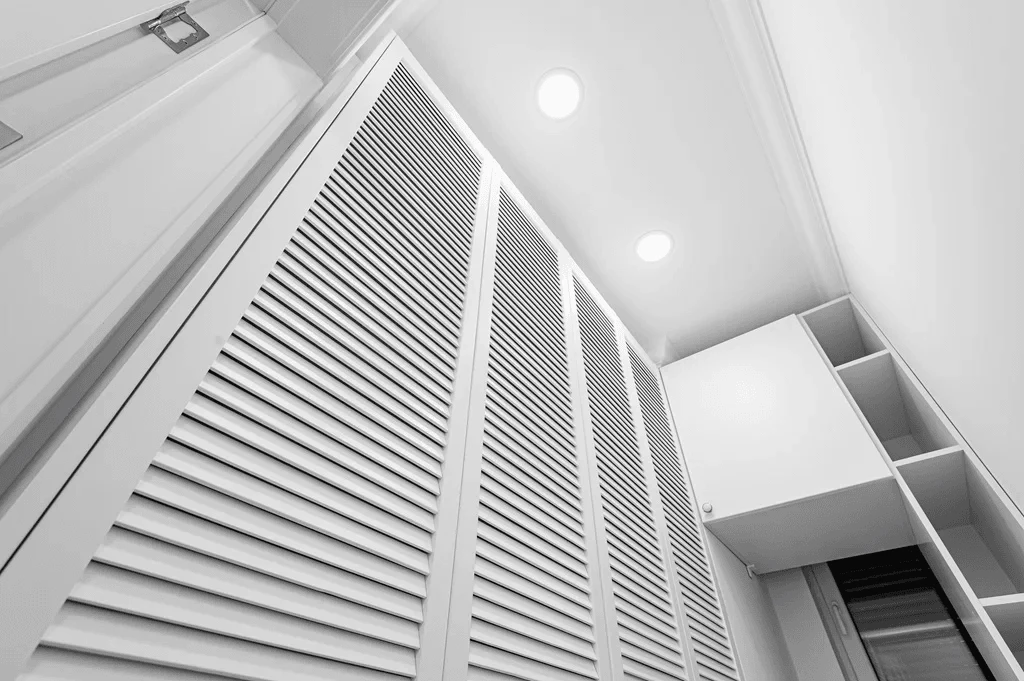
Level Up Your Commercial Properties with Janus Steel’s Louvered Doors
Understanding the different types of louvers and their functions is key to optimizing airflow, temperature control, and aesthetic appeal in your commercial property. Whether you’re looking for fixed, adjustable, or combination louvers, choosing the right type ensures that your space remains efficient and visually appealing.
Ready to upgrade your commercial space? Janus Steel’s louvered doors provide the perfect balance of airflow regulation, weather protection, and style. Take your property to the next level with durable, functional, and energy-efficient louvered doors from Janus Steel. Explore our catalogue and transform your commercial property today!



